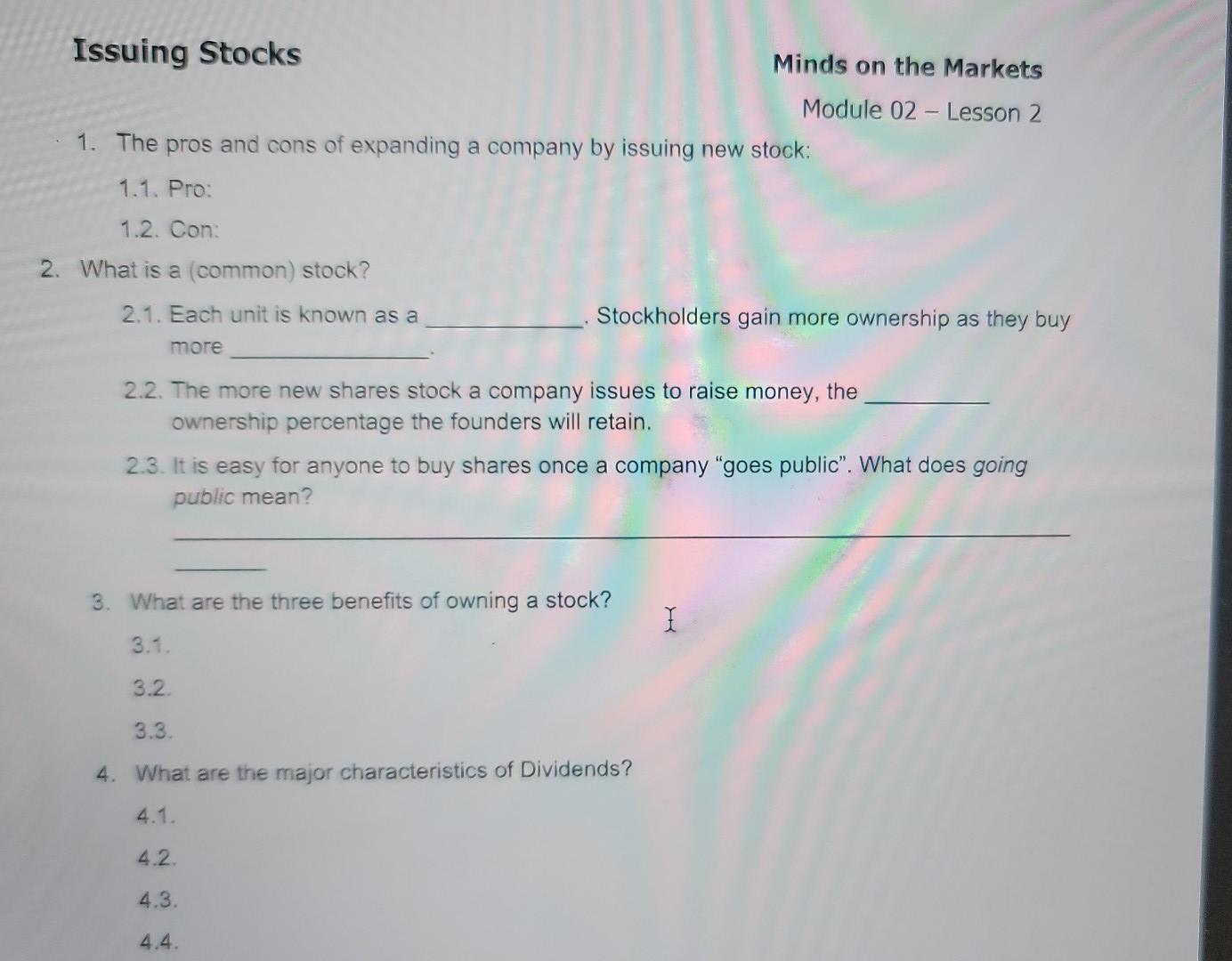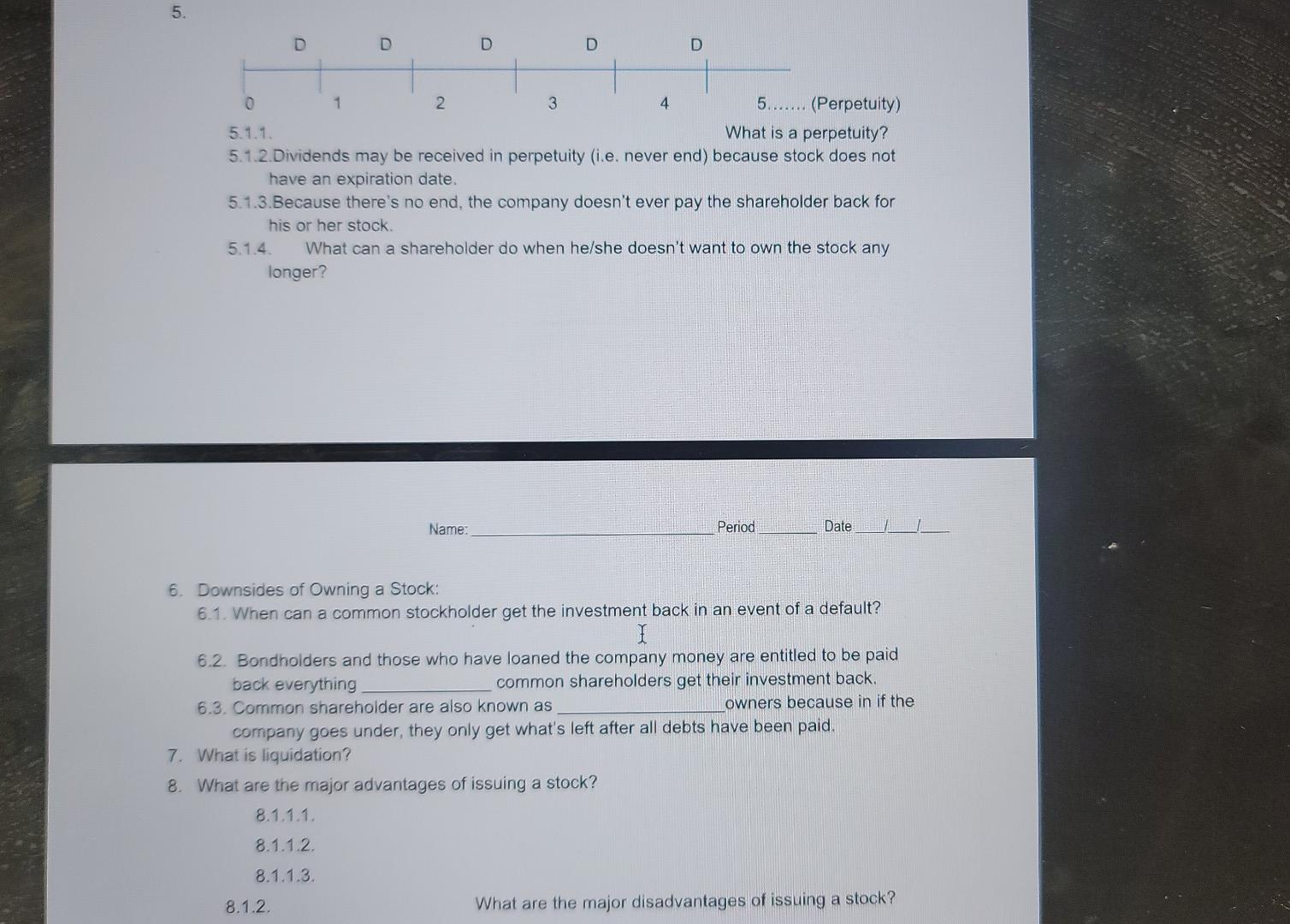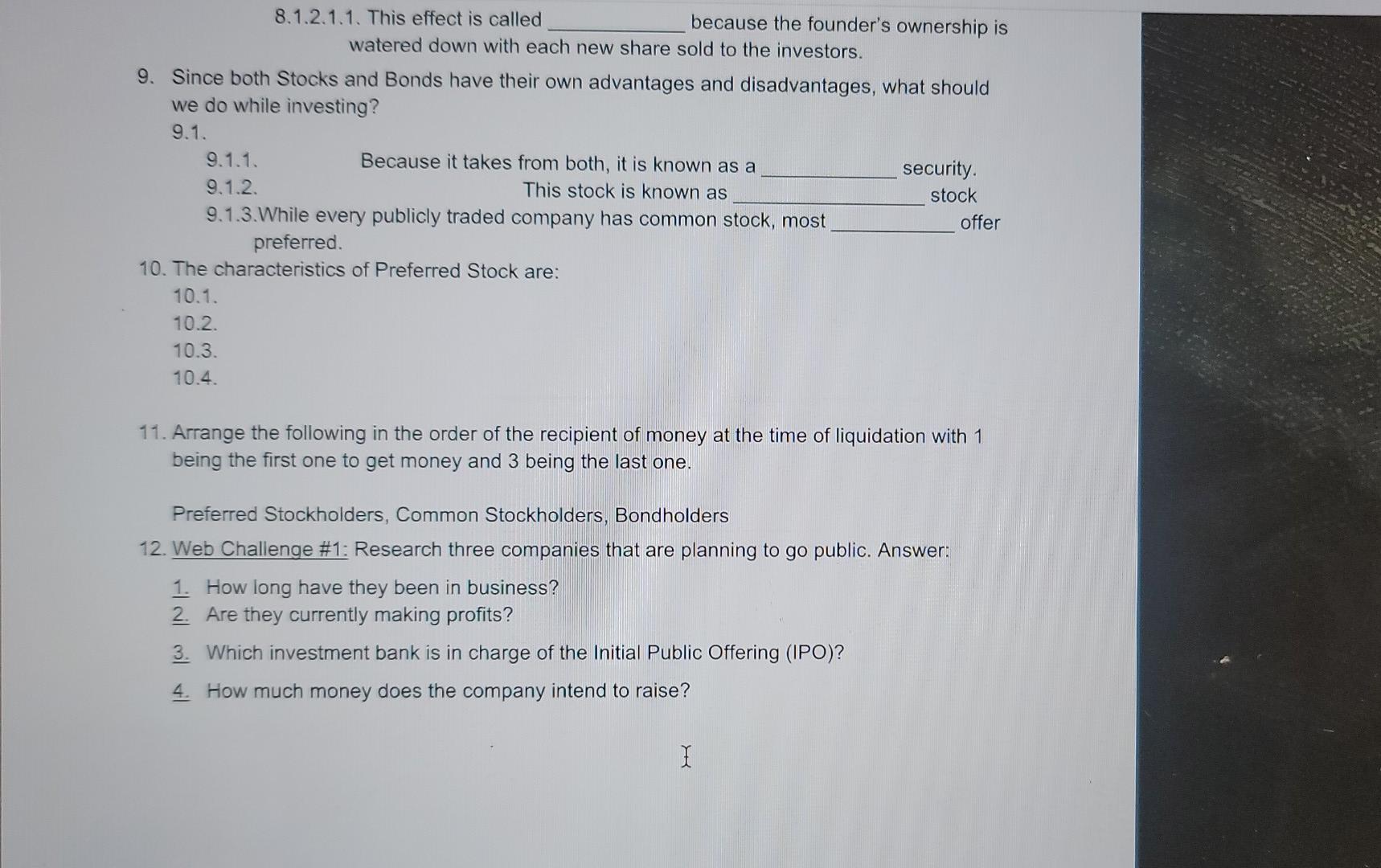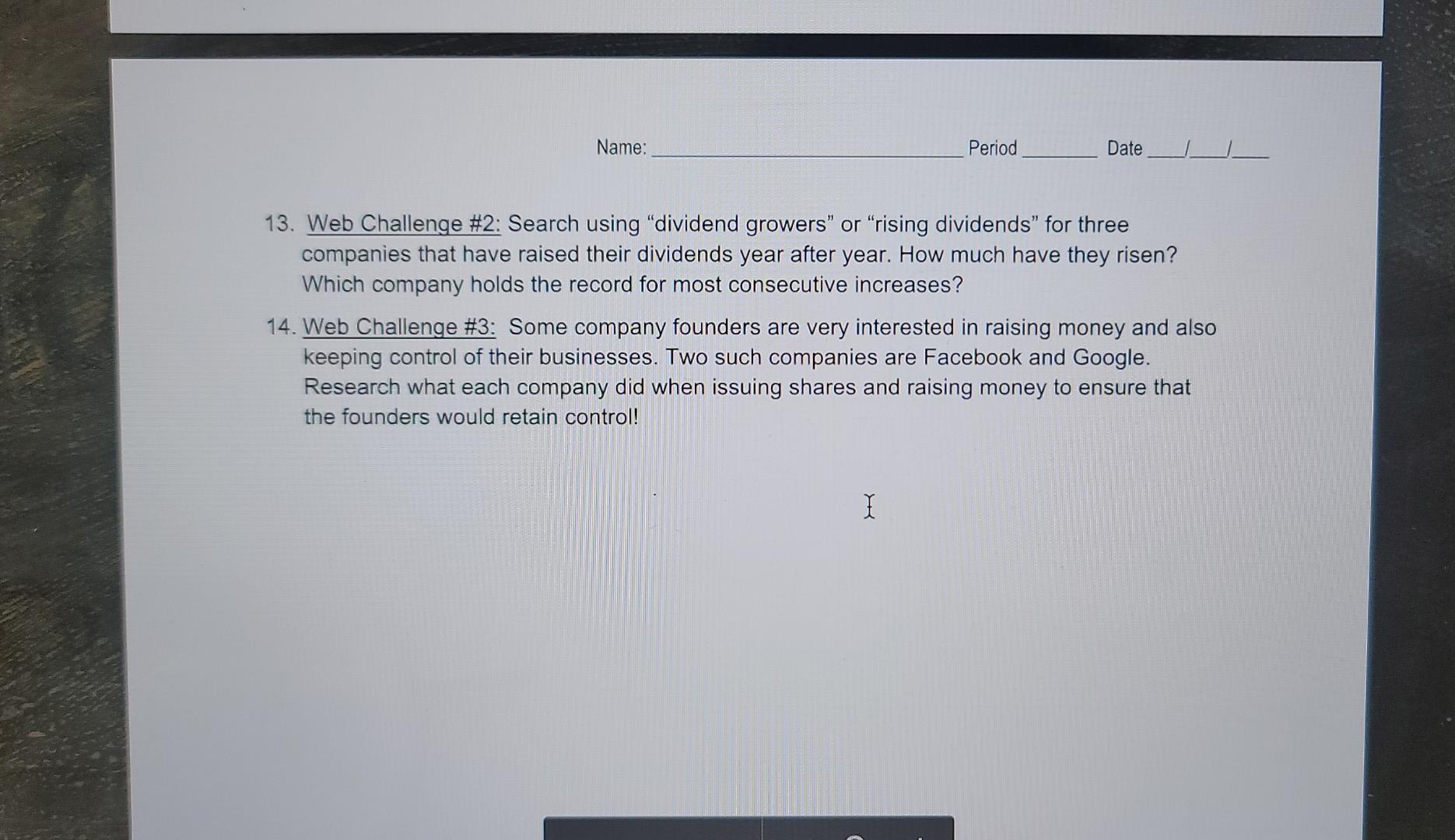Answered step by step
Verified Expert Solution
Question
1 Approved Answer
Issuing Stocks Minds on the Markets Module 02 - Lesson 2 - 1. The pros and cons of expanding a company by issuing new stock:




Issuing Stocks Minds on the Markets Module 02 - Lesson 2 - 1. The pros and cons of expanding a company by issuing new stock: 1.1. Pro: 1.2. Con: 2. What is a common) stock? 2.1. Each unit is known as a Stockholders gain more ownership as they buy more 2.2. The more new shares stock a company issues to raise money, the ownership percentage the founders will retain. 2.3. It is easy for anyone to buy shares once a company "goes public". What does going public mean? 3. What are the three benefits of owning a stock? I 3.1. 3.2. 3.3 4. What are the major characteristics of Dividends? 4.1. 4.2. 4.3 4.4. 5. D D D D D 0 1 2 3 4 5....... (Perpetuity) 5.1.1. What is a perpetuity? 5.1.2.Dividends may be received in perpetuity (i.e. never end) because stock does not have an expiration date. 5.1.3.Because there's no end, the company doesn't ever pay the shareholder back for his or her stock. 5.1.4 What can a shareholder do when he/she doesn't want to own the stock any longer? Name Period Date 6. Downsides of Owning a Stock: 6.1. When can a common stockholder get the investment back in an event of a default? 6.2. Bondholders and those who have loaned the company money are entitled to be paid back everything common shareholders get their investment back. 6.3. Common shareholder are also known as owners because in if the company goes under, they only get what's left after all debts have been paid. 7. What is liquidation? 8. What are the major advantages of issuing a stock? 8.1.1.1 8.1.1.2. 8.1.1.3 8.1.2 What are the major disadvantages of issuing a stock? 8.1.2.1.1. This effect is called because the founder's ownership is watered down with each new share sold to the investors. 9. Since both Stocks and Bonds have their own advantages and disadvantages, what should we do while investing? 9.1. 9.1.1. Because it takes from both, it is known as a security. 9.1.2. This stock is known as stock 9.1.3. While every publicly traded company has common stock, most offer preferred 10. The characteristics of Preferred Stock are: 10.1. 10.2. 10.3. 10.4. 11. Arrange the following in the order of the recipient of money at the time of liquidation with 1 being the first one to get money and 3 being the last one. Preferred Stockholders, Common Stockholders, Bondholders 12. Web Challenge #1: Research three companies that are planning to go public. Answer: 1. How long have they been in business? 2. Are they currently making profits? 3. Which investment bank is in charge of the Initial Public Offering (IPO)? 4. How much money does the company intend to raise? I Name: Period Date 13. Web Challenge #2: Search using "dividend growers" or "rising dividends" for three companies that have raised their dividends year after year. How much have they risen? Which company holds the record for most consecutive increases? 14. Web Challenge #3: Some company founders are very interested in raising money and also keeping control of their businesses. Two such companies are Facebook and Google. Research what each company did when issuing shares and raising money to ensure that the founders would retain control
Step by Step Solution
There are 3 Steps involved in it
Step: 1

Get Instant Access to Expert-Tailored Solutions
See step-by-step solutions with expert insights and AI powered tools for academic success
Step: 2

Step: 3

Ace Your Homework with AI
Get the answers you need in no time with our AI-driven, step-by-step assistance
Get Started


